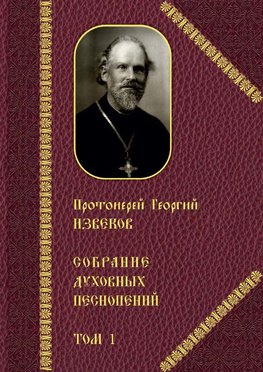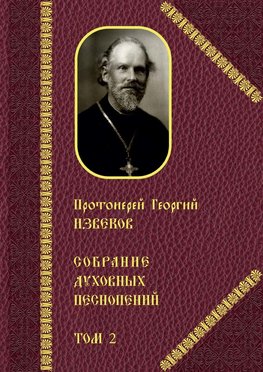Izvekov, Priest Georgi

IZVEKOV, Archpriest Georgiy Yakovlevich (b. 24 February 1874, in Kaluga; d. 27 November 1937, Butovo Firing Range, Moscow Region); hieromartyr. The son of a priest, Izvekov was educated at the Kiev Theological Academy. From 1899 to 1905 he served as a cantor (psalomshchik) at embassy churches in Prague and The Hague. In 1906 he was ordained to the priesthood and assigned to the church of the Alexandrovsky Institute and religious education instructor at the Smolny Institute in St. Petersburg. Few details are known concerning his musical education, which may have occurred while he was living abroad; among other things, he was known for his interest and expertise in the area of musical ethnography and Russian folk songs. From 1910, he taught at the Precentors School in St. Petersburg, established by Smolensky, then from 1913 to 1918 as priest at the Russian embassy church in Berlin. After the Revolution, he took up residence in Moscow, where be served from 1921 to 1926 at the church of the Donskoy Icon of the Mother of God at Perlovskaya Station northeast of Moscow. Besides his priestly ministry, he supported himself as a composer of liturgical music; his compositions and arrangements were held in high esteem, and even though a priest, he was allowed to join the Union of Playwrights and Composers (Dramsoyuz). In 1931 he was arrested for “systematic anti-Soviet activity” (establishing illegal charitable “brotherhoods” and “sisterhoods,” which helped exiled clergy, etc.) and exiled for three years to the northern regions of Kotvas, Velikii Ustiug, and Syktyvkar (Komi Republic). Returning from exile, he returned to Perlovskaya Station and supported himself by commissions for compositions and chant arrangements from choir directors in Moscow and other cities, making folk song arrangements, and as a music copyist. A second arrest occurred in November 1937 for alleged “counter-revolutionary, fascist activity” and resulted in a death sentence and execution by firing squad, carried out at the Butovo Firing Range on November 27, 1937. In 2004 he was numbered among the “New Russian Martyrs” by the Russian Orthodox Church.
Izvekov composed numerous sacred choral works, some of which were published in Prague and St. Petersburg in the 1900s and 1910s, but others of which were published for the first time in the Collected Works, 2 volumes (Moscow: Zhivonosny Istochnik, 2019) . In terms of style and technique, he was a follower of the “New Direction” in Russian church music, initiated by Alexander Kastalsky and other composers affiliated with the Moscow Synodal School of Church Singing. His works are rich in terms of choral color, employ a variety of harmonic and contrapuntal textures, and generally exhibit a high degree of artistic content and complexity.
Izvekov composed numerous sacred choral works, some of which were published in Prague and St. Petersburg in the 1900s and 1910s, but others of which were published for the first time in the Collected Works, 2 volumes (Moscow: Zhivonosny Istochnik, 2019) . In terms of style and technique, he was a follower of the “New Direction” in Russian church music, initiated by Alexander Kastalsky and other composers affiliated with the Moscow Synodal School of Church Singing. His works are rich in terms of choral color, employ a variety of harmonic and contrapuntal textures, and generally exhibit a high degree of artistic content and complexity.






